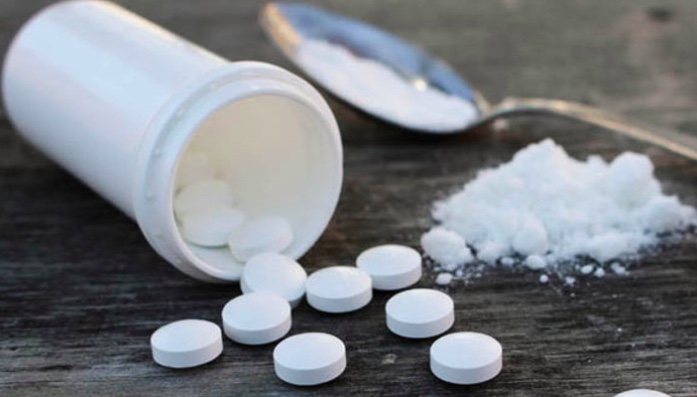O P I N I O N
The Soapbox

Stand up. Speak up. It’s your turn.
New Hampshire has consistently ranked among the top five states in the nation for opioid-related overdose deaths. The annual rate of such deaths is continuously climbing. These tragedies can no longer be attributed to the over-prescription of opioid painkillers as strict regulations placed on prescribing practices and abuse-deterrent formulas (ADFs) have created a leveling-off of prescription painkiller deaths in recent years. An unintended consequence of this has been the unfortunate shift to heroin which is now often cut with fentanyl.
Fentanyl is a legitimate pharmaceutical medication used in healthcare. Illicit fentanyl is a dangerous substance that originates from drug manufacturers in China and Mexico. Fentanyl is incredibly potent and therefore highly lethal to those who ingest or come in contact with it. The Chinese government has refused to take responsibility for their hand in producing this weapon and will not tighten regulations on manufacturers that produce and ship this drug in massive quantities.

Fentanyl, as well as the precursor chemicals used to produce it, are sent from Chinese sellers to drug cartels in Mexico. The cartels are now using these precursor chemicals to synthesize fentanyl in their own labs. The drugs are then hidden expertly in other products to be smuggled across our southern border or shipped directly over the U.S. Postal Service to customers reached through the dark web. At the moment, our border patrol agents and law enforcement officials are not equipped with sufficient appropriate tools to detect these substances and stop them from entering our country. Once they have made it in, they disperse easily and quickly.
Fentanyl has infiltrated New Hampshire and is wreaking havoc on the health of the good people who live there. Code 3 is an organization that addresses gaps in education, equipment, and empowerment of police departments by providing the tools and resources needed to do their jobs effectively and better serve their communities. We have seen firsthand that New Hampshire has a dire need for increased education surrounding the opioid crisis and more access to resources that can stop fentanyl distribution or treat those suffering from addiction or overdose.
Providing critical safety trainings, issuing hardship and innovation grants, and organizing compelling community programming has allowed us to advance our mission of caring for cops and the New Hampshire communities they serve. Conquering this crisis in the Granite State will require more resources. Providing first responders and police forces with naloxone, a life-saving medicine used to reverse the effects of a drug overdose, along with addiction treatment centers need funding from the state and federal governments in order to decrease the number of lives lost to illicit opioids and fentanyl.
New Hampshire and our nation as a whole must also be proactive in stopping the flow of fentanyl into the U.S. in the first place. If China will not regulate its own drug manufacturers, it is up to our border patrol agencies to detect and seize the drugs crossing our borders and traveling through our mail system. These agencies are currently not operating with state of the art technologies that could increase the quantity of drugs detected. Without sufficient appropriate tools to scan all incoming persons, vehicles, and packages, it is possible for fentanyl to be transported under the radar and infiltrate our communities.
The answer to this problem is increased funding to state-run organizations responsible for treating addiction and to border patrol and law enforcement agencies tasked with detecting fentanyl and other illicit drugs at ports of entry. A complex issue such as this demands a holistic approach to solving it.
New Hampshire state leaders have a duty to demand increased funding to these initiatives that will provide aid to their people and communities that have been suffering too long.
If there are ways to reverse the trend of opioid-related overdose deaths, they must be explored to the fullest extent. Arm our border patrol agents and law enforcement officials with the necessary tools and procedures to stop fentanyl from crossing our borders and entering the U.S. Postal Service, and establish proper prevention and treatment plans across the great state of New Hampshire.
 Joseph Abdalla is Executive Director of Cops and Citizens for Healthy Communities (Code3forchange.org) committed to the mission and vision of building bridges between cops and citizens for healthy communities.
Joseph Abdalla is Executive Director of Cops and Citizens for Healthy Communities (Code3forchange.org) committed to the mission and vision of building bridges between cops and citizens for healthy communities.







